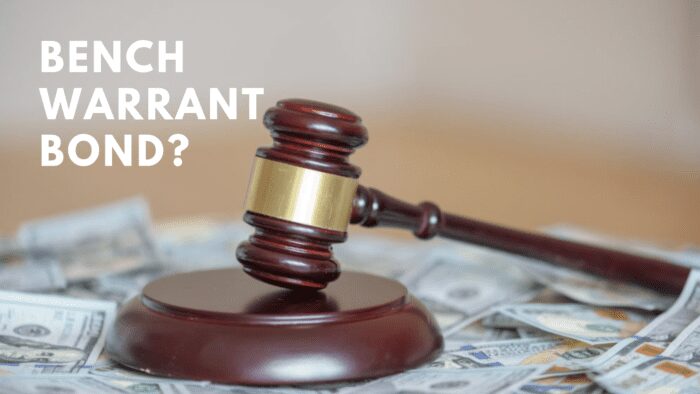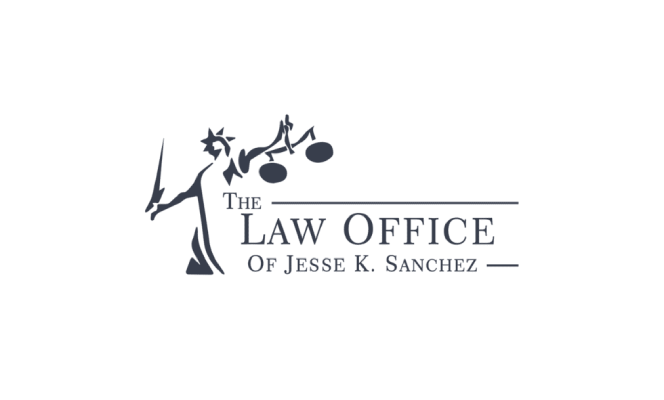Oh no. You had a court date, or were ordered to appear in front of the judge for a traffic ticket or any number of reasons and frankly, you didn’t show up to court. You missed a court date. In that instance, the judge may have issued a bench warrant for your arrest. A bench warrant for your arrest means that the police can arrest you at any given time, often at the most inopportune times. While you’re waiting or trying to find out how long until a warrant expires, you could be at home or at work and there could be a county-wide arrest warrant sweep wherein bench warrants are executed.
The absolute truth is that If you do not address the bench warrant for your arrest, you will have a constant albatross around your neck that you can be taken to jail at any time. And not only will you be arrested at any interaction with a law enforcement officer, you’ll more than likely have to wait in jail until you see a judge or are able to post a bond, which usually is very high because the court may deem you some sort of a flight risk. If you believe you have a bench warrant for your arrest, and you need an Indianapolis criminal defense lawyer, call The Law Office of Indianapolis Criminal Defense Lawyer Jesse K. Sanchez at (317) 721-9858 today.
Bench Warrants Explained
What is a Bench Warrant?
A Bench Warrant is a written order issued by a judge authorizing the arrest of a person charged with some contempt, crime, or misdemeanor. The main difference between a bench warrant and an arrest warrant is that an Indiana arrest warrant is issued after a grand jury or law enforcement has enough evidence to tell that you have committed a crime. However, a bench warrant is usually the more common type of warrant. A bench warrant is issued when someone fails to make an appearance for a court hearing or fails to answer a subpoena. A bench warrant doesn’t require evidence, unlike the arrest warrant, a bench warrant is an order for the immediate arrest of someone.
If someone is arrested because of a bench warrant, a bail amount is set for their release, and they will most likely remain in jail before going to court.

How to Clear a Bench Warrant Without Going to Jail?
While there is no guarantee that you will be able to resolve your bench warrant without going to jail, there is a possibility that you can resolve the arrest warrant without actually being arrested. First, call an Indiana attorney. You can reach The Law Office of Jesse K. Sanchez at (317) 721-9858 for help resolving your bench warrant today. Additionally, you can contact the court to find out the requirements to resolve your warrant. Here is a listing of the website address and phone number for the Indiana county courts as a resource.
What is Bench Warrant for Failure to Appear in Indiana?
A bench warrant for a Failure to Appear, which is commonly referred to a FTA warrant. You would have a FTA bench warrant issued if you for some reason missed your court date. When figuring out how much will your bail be for a FTA warrant, you should expect to pay enough to cover the fines and the court cost for the initial failure to appear. If you were able to pay enough money to bond out on a FTA, a new court date is set and you need to MAKE SURE TO BE IN COURT when you are scheduled to appear.
Does a Bench Warrant Show Up on a Background Check?
If you’ve asked the question, “Can I get a job with a bench warrant?“. Well, that is a difficult question to answer. First, if you know that you have an outstanding bench warrant, you need to get that outstanding bench warrant resolved as soon as possible. While there are jobs that do not require a background check, you Since a bench warrant for your arrest is issued by a court, it is part of court records and will show up on a background check.
What Happens When You Turn Yourself in for a Bench Warrant?
If you decide to satisfy your outstanding bench warrant by turning yourself in for failing to appear in court, your bench warrant will be lifted. The court would also schedule a schedule a hearing for your bench warrant before a judge or commissioner. Under normal circumstances you can expect for your bench warrant hearing to be within 72 hours of you turning yourself in to the court.
What Does it Mean When a Bench Warrant is Recalled?
If the warrant for your arrest is recalled, the court’s intention to have you arrested has been reversed, meaning that you aren’t going to be arrested for any warrant. When a bench warrant is recalled, it’s considered as nullified and no longer a valid bench warrant or an arrest warrant by the court.
Do You Have an Arrest Warrant? Call (317) 721-9858 Today!
How to Handle a Bench Warrant?
One of the best ways to get rid of a bench warrant for your arrest are found in getting a lawyer to represent you in court or turning yourself in for the warrant. Legal assistance from a criminal defense lawyer will always help with you getting more information on how to get out of a warrant.

How Much is Bail for a Bench Warrant?
Bench warrants are issued for various reasons. Because, there are a number of reasons that warrants are issued, the bail for a bench warrant can vary widely, from another court appearance set, all the way to a no bond detention. A no bond detention means that there is no way to get out of jail until the judge decides to reduce or grant bail.
Can a Bench Warrant Expire? Does a Warrant Ever Go Away?
A common question that people with bench warrants ask is, “How long does a bench warrant last?”. “How long does it talke Which is a great question if you have an arrest warrant that you are wondering if bench war The only way that a bench warrant would expire would be if for some reason that the judge recalled the warrant. A bench warrant is a court document, and it is in your background check until you die. Because a bench warrant is usually the result of a noncompliance of an order of the court, some of the common ways to clear up an outstanding bench warrant are by:
- Attend a court-ordered hearing
- Pay any court-ordered fines
- Appear for jury duty (if so required by the court)
If you had a bench warrant for your arrest, and the judge had summarily decided to recall your bench warrant, then your arrest warrant is nullified. When the judge recalls your bench warrant, the warrant is considered nullified and no longer valid in the eyes of the court.
How to Check for a Bench Warrant in Indiana?
Generally speaking, arrest warrants are confidential. However, if the court has not indicated that the bench warrant, or arrest warrant is confidential, you can find out if you have a bench warrant by going to the My Case website. Additionally, the only information that would be listed in the My Case management system would be if the court uses the Odyssey case management system. You can find out if your court uses the Odyssey case management system here.
Do You Have a Bench Warrant that Needs to Be Cleared
A bench warrant is not a matter that should be taken lightly. If you have a bench warrant or an arrest warrant for that matter, you need to contact one of the best criminal defense lawyer Indianapolis has to offer, The Law Office of Indianapolis Criminal Defense Lawyer Jesse K. Sanchez at (317) 721-9858 for help in turning yourself in for a bench warrant today.




